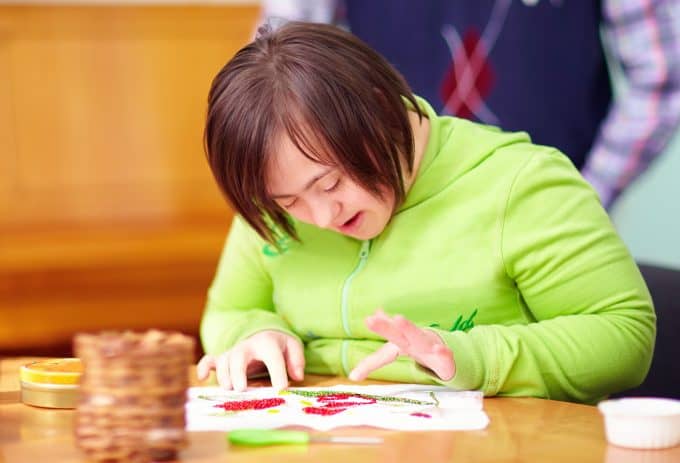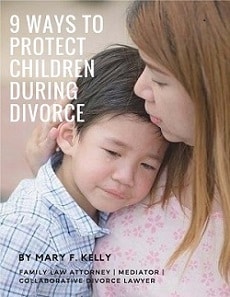Parents with special needs children who are young adults often cope with a difficult set of circumstances. A divorce may make things worse.
Special needs adults are challenging even when their parents are married, but the challenges continue and may get worse when their parents divorce. In many instances, special needs adults lack social and coping skills. Sometimes their limitation is a psychological issue: They cannot cope with stress, crowds, sudden change, or even biological events like menstruation.
High-functioning special needs adults can be the most challenging. They may have finished high school, or even college, and may be able to obtain a job, at least for a while. They may be intellectually bright, but this can turn into another handicap as they realize they don’t fit in. Some special needs adults have driver’s licenses, although driving may be dangerous to themselves and others.
Special needs adults often have the same desires as other young adults: to go out with friends, drive, smoke, drink, use marijuana, have an intimate relationship, and have sex. But their psychological profile impedes their ability to fit in, to control their pleasure desires, and to make reasonable judgments. If their behavior is troublesome, like substance abuse, excessive drinking and getting into physical fights with friends, they may not be able to mature and modify the behavior to prevent things from getting worse.
Special needs behavior management
When a special needs adult has a crisis, it is very important for his or her parents to be on the same page. If he or she has been driving while intoxicated or getting picked up by the police for anti-social behavior, some parents decide to give their child an ultimatum: Stop drinking/smoking/ using drugs and go to rehab, or find another place to live. It’s not an easy decision for parents to make, but it can work if they agree and can enforce the ultimatum together.
On the other hand, parents who are divorcing often disagree about what message to convey to their child. They each handle the child’s difficulties differently and cannot agree on rules and consequences for breaking them. In fact, sometimes different approaches to parenting a special needs or disabled child are a contributing factor to the divorce. If a crisis develops with their special needs child, deep divisions or competing viewpoints can turn into intense conflict.
To add to the problem, these young adults usually cannot live independently. They don’t have jobs that pay enough to rent their own apartment. And they may not be able to live alone safely or have the skills to manage a budget, pay rent, utilities, cooking, and cleaning. So parents don’t issue the ultimatum to move out. Their adult children end up living with one of the parents, or shuttling back and forth between the divorcing parents, who are not prepared or willing to set rules and guidelines (especially together).
Problems when special needs or disabled adults live at home
If your child is aggressive and abusive, refuses to take medications that would help his or her condition or reduce bad behavior, what is your response? Do you just put up with it because you are the parent?
In one instance, when a young special needs man engaged in threatening and abusive behavior, his father called the police frequently for help. The father even obtained orders of protection that barred the son from living at the house. This pattern happened repeatedly, but the father always relented and took the son back, ignoring his own order of protection. The district attorney’s office and the police department finally told the father that he would have to cooperate if he wanted another order of protection. If the son violated it and the father called the police, the son would be removed from the house and face a trial and criminal penalties.
In another case, the parents could not agree on their special needs son’s driving privileges. When the son had an accident or a close call, the mother said he was a really good person and always gave him another chance. She lent him her car because the child had a driver’s license and wanted to drive. The father said that response was enabling the son’s bad behavior, and that the child’s driving a car could endanger both the public and himself.
One approach for resolution is family therapy with both parents and the young adults. If one parent refuses to go, certainly the parent who sees a problem should seek a therapy relationship. Special needs children can require complex decisions, intervention, forbearance, and significant guidance. Of course, every child may require such parenting skills, but a therapist can help with the particular issue of special needs or disabled adults living with their parents.
Special needs adult resources
If you need to find another residence for your special needs adult child in New York State, the Office of People with Developmental Disabilities (OPWDD) is a good first resource. There are also many therapists who are informed about resources for special needs adults.
Special needs adults need estate planning, too. The most important document is a special needs trust or supplemental needs trust. It is a trust that allows you to fund expenses for your child while they are receiving governmental benefits (such as Social Security Disability or Supplemental Security Income) without displacing those benefits.
At some point, you may need the authority to make decisions for your adult special needs or disabled child. To do this in New York State, you will need to file a guardianship petition in the Supreme Court. It is important to consult with a lawyer who can assist you with estate planning and guardianship for special needs adults.




